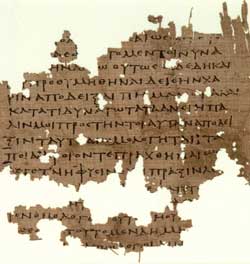...continued from Part 4: Ethics
To summarize, the primary concepts of Platonism are:
- That there is a single source of all things, which we call The One or The Good, ineffable and transcendentally above all qualities.
- That from this source reality unfolds as a communication of goodness, descending in causal steps through the power of similarity.
- The immediate offspring of The One are simple henads – unities or gods, providential agents who supply the whole universe of being with specific characteristics.
- The first subsistence of these characteristics are real beings – eternal ideas or forms which act as stable paradigms for everything which comes into temporal existence.
- The secondary subsistence of these characteristics are in creatures which unfold their natures through the cycles of time.
- The manifested cosmos, being an expression of an eternal paradigm is perpetual.
- In the world of time, souls are primarily self-motive; secondarily they move bodies (matter being the passive recipient of motion).
- Human souls are rational: all rational creatures are more or less direct participants in the stability of ideas.
- Generally speaking human souls are involved in forgetfulness of ideas, and have difficulty in distinguishing eternal ideas from their numerous manifestations.
- All human learning is a recovery of these largely forgotten ideas: the recovery being effected both through contemplative thought and reflection upon the experiences of life.
- Human souls have the power to descend into material life and ascend to their original condition of intellectual (or spiritual) being – and this power, like the manifested cosmos, is perpetual.
- The soul becomes truly herself and most effective of order and beauty when she unites the one of her being with the gods, and her reasons with intellect.
Endnotes
1 See Olympiodorus' Life of Plato, Thomas Taylor Series (TTS) vol. IX, p. 94.
2 The translation is that of Thomas Taylor (1758-1832), as are all those used in this article – although I do occasionally amend his wording where I think this may help the modern reader.
3 Plotinus himself did not publish his doctrines in written form – this was done soon after his death by his leading disciple, Porphyry, who edited them into six sets of nine treatises, The Enneads. It is, however, from the point at which Plotinus began to teach more openly about such matters that scholars consider the Neoplatonic phase of the Platonic tradition to have commenced.
4 See Proclus' Elements of Theology, proposition 28 – "Every producing cause gives subsistence to things similar to itself, prior to such as are dissimilar."
5 Which is precisely the message which Socrates delivers in the second and third books of the Republic where superficial commentators think that he rejects myth completely: he does not – he says, "For though these things were true, yet I should not imagine they ought to be so plainly told to the unwise and the young, but ought much rather to be concealed. But if there were a necessity to tell them, they should be heard in secrecy, by as few as possible; after they had sacrificed not a hog, but some great and wonderful sacrifice, that thus the fewest possible might chance to hear them." (378a) The hog was the sacrifice made before the candidate was initiated in the Eleusinian mysteries.
6 At the beginning of the seventh book of the Republic.
7 Photius, Life of Pythagoras, 15, trans. K S Guthrie.
8 Dianoetic, literally "a knowing through", refers to that power whereby we reason in an accurate way, allowing the movement of thought to proceed from, and return to, the stillness of intuitive intellect.
9 Soul is often specifically referred to as a feminine creature in the Platonic tradition: see, for example, Ammonius' Commentary on Aristotle's On Interpretation, to be found in Works of Aristotle II, TTS XX, p. 143, where the reasons for this are explained.
10 The word anger in this context does not refer to the familiar negative emotion normally denoted, but rather that faculty which is aroused when we consider things to be disordered, and which attempts to return the self and its related environment to a state of ordination.
11 Ennead I, ii, 6.
12 Commentary on the Timaeus, 229A.
Tim Addey

Tim Addey is a published author and chairman of the Prometheus Trust, a charity that has published many of the key texts in Platonic philosophy. Please visit the website of the Prometheus Trust for further details at : www.prometheustrust.co.uk. His books include The Seven Myths of the Soul and The Unfolding Wings: The Way of Perfection in the Platonic Tradition, and co-author of Beyond the Shadows: The Metaphysics of the Platonic Tradition.

